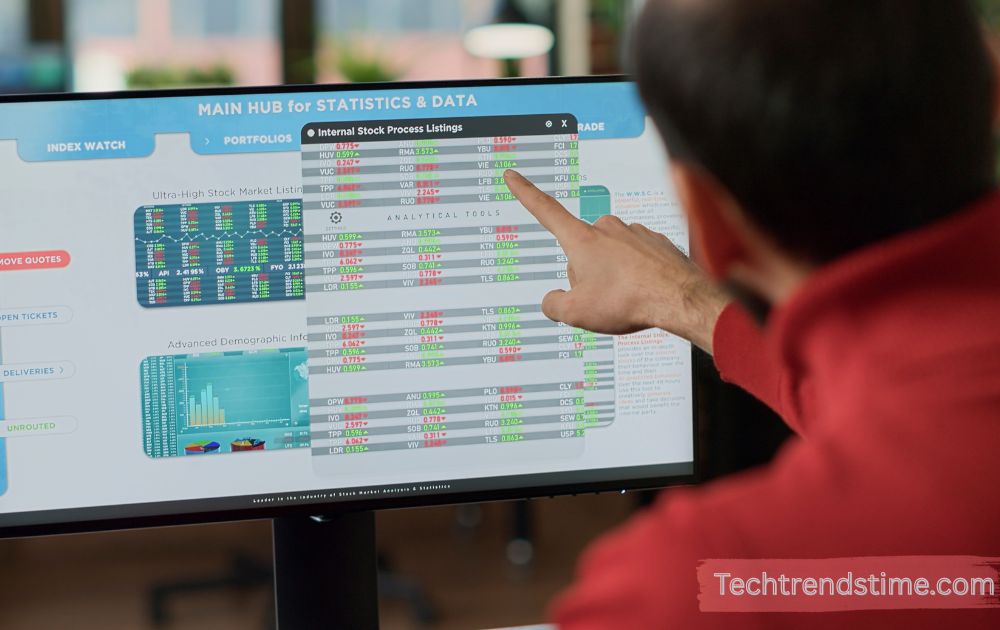The healthcare industry is undergoing a massive transformation, largely due to the rising integration of artificial intelligence. One of the most promising developments in this space is the growing importance of AI and collaboration between healthcare providers. These two forces advanced technology and teamwork are combining to deliver faster, safer, and more efficient care to patients.
What is AI in Healthcare?
Artificial Intelligence (AI) refers to machines that simulate human intelligence to perform tasks. In medicine, it’s used for analyzing data, diagnosing diseases, automating workflows, and even predicting health outcomes. Artificial Intelligence (AI) in healthcare refers to the use of computer systems and algorithms that can mimic human intelligence to perform tasks related to medical care. These tasks include diagnosing diseases, analyzing medical images, predicting patient outcomes, personalizing treatment plans, managing healthcare data, and even assisting in surgeries. AI doesn’t replace doctors it empowers them by making processes faster, more accurate, and more efficient.
Why Collaboration Is Crucial
Healthcare is not a solo game. It involves physicians, nurses, lab technicians, pharmacists, and administrative staff working together. AI and collaboration between healthcare providers make this teamwork more efficient and impactful. Collaboration is essential in healthcare because no single provider has all the answers or skills needed to treat a patient fully. Healthcare involves a diverse team doctors, nurses, specialists, pharmacists, therapists, and more each contributing their expertise. When these professionals work together, patients receive more comprehensive, accurate, and timely care.
Why Now? The Push Toward Integration
Healthcare providers now deal with massive amounts of patient data. The synergy of AI and collaboration between healthcare providers helps make sense of this information in real time. With the rise of telemedicine, AI and collaboration between healthcare providers are essential for ensuring continuity of care across geographic boundaries.
Read Also: Application Migration: Everything You Need to Know About Moving Applications Successfully
Key Benefits of AI-Driven Collaboration
AI-driven collaboration in healthcare brings a host of powerful benefits that improve how providers work together and deliver care. Here are some of the key advantages:
Faster Decision-Making
AI quickly analyzes patient records, lab reports, and clinical notes. This supports fast and informed decision-making, a core benefit of AI and collaboration between healthcare providers.
Fewer Errors
By sharing real-time data and recommendations, AI and collaboration between healthcare providers significantly reduce the chances of medical errors.
Improved Patient Experience
Patients benefit from a more streamlined journey from diagnosis to treatment thanks to AI and collaboration between healthcare providers.
Real-Life Applications
The combination of AI and collaboration between healthcare providers is no longer just theoretical it’s happening right now across various medical fields. Here are some real-life ways this powerful duo is transforming healthcare:
Multidisciplinary Teams: In cancer care, for example, oncologists, radiologists, and surgeons collaborate. AI consolidates data, helping these experts make joint decisions. This is a direct result of AI and collaboration between healthcare providers.
Chronic Disease Management: AI tools monitor patients with conditions like diabetes or heart disease. Providers from different specialties coordinate better, showcasing the power of AI and collaboration between healthcare providers.
Emergency Response: In critical care, real-time decisions save lives. AI and collaboration between healthcare providers ensure that all relevant teams get the information they need instantly.
Challenges to Consider
While AI and collaboration between healthcare providers can enhance care, they also raise concerns about data breaches. Strong encryption and compliance are a must. Algorithms may reflect biases from their training data. Ongoing evaluation is vital to ensure fairness in AI and collaboration between healthcare providers. Healthcare staff need proper training to utilize AI tools effectively. Investing in education ensures the full potential of AI and collaboration between healthcare providers is realized.
AI in Rural and Underserved Areas
Many rural clinics lack specialists. AI and collaboration between healthcare providers enable virtual consults and diagnostic support, bridging the gap in care. In recent health crises, AI and collaboration between healthcare providers helped track virus spread, manage hospital resources, and coordinate vaccine delivery.
Building the Future
The future of healthcare is being shaped right now by the powerful combination of AI and collaboration between healthcare providers. As technology advances, we’re moving toward smarter, more connected systems that revolutionize how care is delivered. Here’s a glimpse at what lies ahead:
Smart Hospitals
Facilities are now integrating AI into every aspect of care from smart beds to robotic surgeries. AI and collaboration between healthcare providers turn hospitals into connected ecosystems.
Wearables and IoT
Devices like smartwatches collect health metrics. When these devices connect with provider networks, AI and collaboration between healthcare providers ensure timely intervention.
How to Get Started
Choose AI platforms designed for healthcare. This is the foundation of successful AI and collaboration between healthcare providers. Digital transformation requires a culture of cooperation. Embracing AI and collaboration between healthcare providers starts with people, not machines. Track outcomes, get feedback, and refine your approach. This ensures long-term success with AI and collaboration between healthcare providers.
FAQs About ai and collaboration between healthcare providers
What is meant by “AI and collaboration between healthcare providers”?
It refers to the use of artificial intelligence tools to support and improve teamwork among doctors, nurses, and other medical professionals.
How does AI help in collaborative medicine?
AI streamlines data sharing, assists in decision-making, and improves coordination across medical teams.
Is it expensive to implement AI in healthcare?
Initial costs can be high, but the long-term efficiency and improved patient outcomes often justify the investment.
Can AI work in small clinics and rural areas?
Yes, especially when combined with collaboration tools. It enables remote consultations and better diagnosis.
What’s the future of AI and collaboration between healthcare providers?
The future includes fully connected health systems, real-time analytics, and improved care delivery across all levels of medicine.
Conclusion
The fusion of AI and collaboration between healthcare providers is more than a tech trend it’s a game changer. It accelerates diagnosis, enhances communication, and ultimately saves lives. As healthcare continues to evolve, embracing this powerful combination will be key to delivering high-quality, patient-centered care.
Latest Post!
- BinusCX: Enhancing Customer Experience in the Digital Era
- The Power of Video&A Complete Guide to Boosting Engagement
- Antarvwsna: A Deeper Look Into Inner Desires and Human Emotions
- Classroomus: The Future of Smart Learning Spaces
- Schedow: Exploring Its Meaning, Uses, and Influence
- Soutaipasu: Meaning, Origins, and Modern-Day Significance















